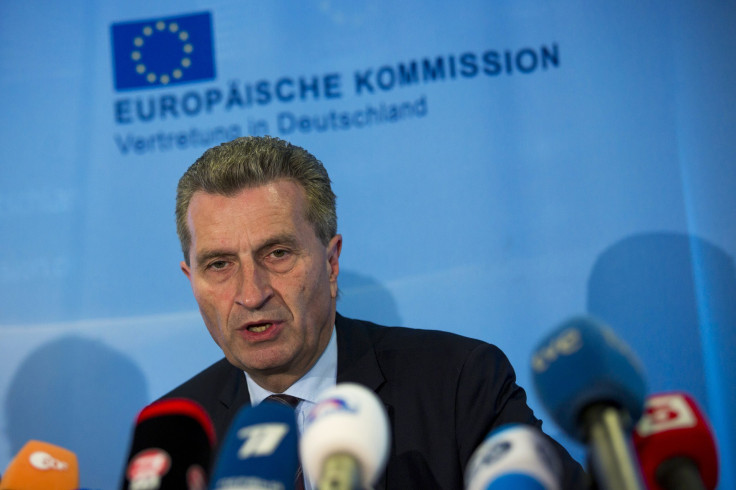Russia-Ukraine Conflict: Europe's Energy Chief Not Ruling Out 'Worst-Case Scenarios' For EU Energy Security As Tensions With Moscow Escalate

Europe’s energy chief says he is not ruling out Russia's blocking natural gas flows to Europe in retaliation for Western sanctions related to fighting in Ukraine. European Energy Commissioner Guenther Oettinger was addressing what he called the “worst-case scenarios” for the region’s energy security this winter as tensions with Moscow escalate.
If that happens, the EU could see sweeping supply shortages and price hikes during the months it needs gas most, analysts say.
Oettinger made the statements on Tuesday at an event for Germany utility RWE in Brussels, Reuters reported. He accused Russian President Vladimir Putin of deceiving the Western world in its actions in Ukraine. Moscow in recent weeks has attempted to justify its military intervention there by claiming it is creating a “humanitarian corridor.” About 100 Ukrainian troops were killed recently after Russian troops opened fire on the corridor.
“That Putin would use false information, lies and weapons was beyond my imagination,” Oettinger said, Reuters reported. “That’s why I am not ruling out worst-case scenarios any more.”
Europe imported some 162 billion cubic meters of gas from Russian gas monopoly Gazprom OAO (MCX:GAZP) last year -- about one-third of Europe’s overall gas consumption. Roughly half the gas is piped through Ukraine, making supplies even more vulnerable to conflict. Oettinger is mediating talks between Moscow and Kiev to resolve a gas pricing row and avert a crippling supply cut this winter, Reuters noted.
Morgan Stanley analysts warned this summer that Russia could decide to cut off Europe’s gas supplies in response to a strong package of U.S. and European sanctions aimed at ending Moscow’s support for the separatists.
Yet the EU has little by way of a backup plan if Russia turns off the pipes in the coming months, energy experts previously told International Business Times. The main reason is simply that alternative gas supplies are either unavailable or prohibitively expensive in the short term. “Currently from the sourcing perspective, it’s hard to substitute this gas” from Russia, Kurt Oswald, a Middle East partner at the global consultancy A.T. Kearney, said in a July interview.
© Copyright IBTimes 2024. All rights reserved.





















